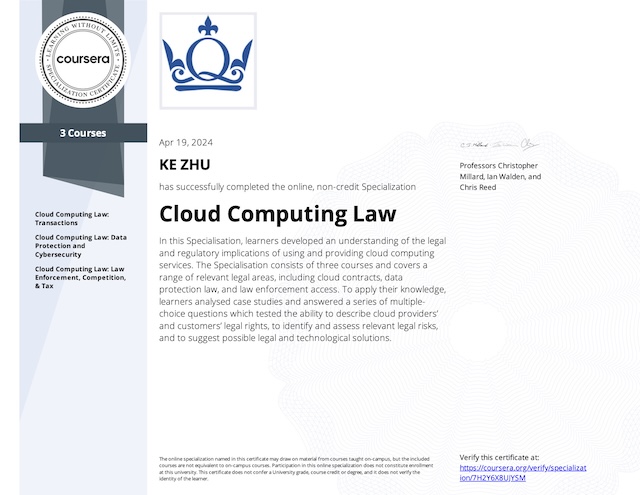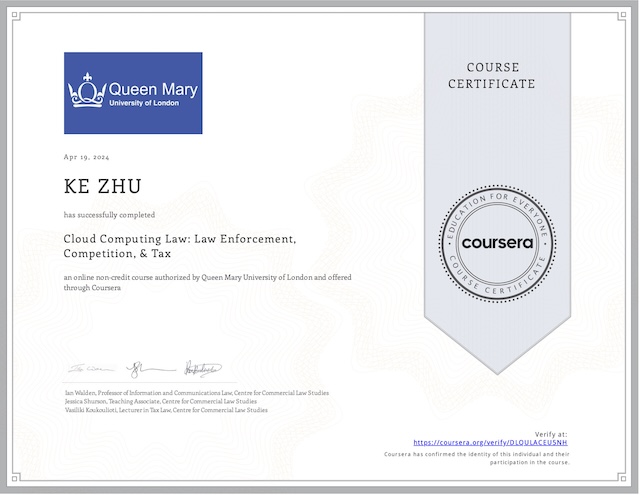Mutual Assent
Mutual ascent describes an agreement between two parties that intend to form a contract. Parties often have extensive negotiations before signing the contract. These negotiations happen over time that are subject to the parties’ choice and are not predetermined by law or circumstance.
Individuals don’t have to be bound by contractual promises unless they want to, so figuring out whether they want to be bound is important. A contract usually is formed when there’s mutual assent. Mutual assent describes the act of agreeing to the terms of the contract.
Mutual assent usually contains two components, offer and acceptance, which are elements that traditionally were required for the formation of a legally binding contract. The person who makes an offer is often called the offeror, and the person who hears and considers the offer is the offeree. With both offer and acceptance, there is also mutual assent.
Uniform Commercial Code
The Uniform Commercial Code, which governs the sale of goods, has a number of provisions concerning mutual assent, as well as offers and acceptances. UCC 2-204 deals with contract formation in general. UCC 2-205 deals with firm offers. UCC2-106 is an unusual default rule about the offer and acceptance in formation of contract.
Expressed Intention
In the case of Embry v. Hargadine, the court held that it is not necessary for the defendant to have an intention to contract. What matters is the expressed intention. The objective manifestation of consent that controls. What the speaker subjectively meant, or what the listeners subjectively believed the speaker to mean, doesn’t count.
- Parties that intend, but don’t manifest, don’t have a contract.
- Parties that don’t intend, but do manifest, do have a contract.
The undisclosed intention of the promissor is immaterial if his outward actions would lead a reasonable person to conclude that he intends to form a contract. Courts should look at a parties outward expression rather than the internal intention of the party.
“A contract has, strictly speaking, nothing to do with the personal, or individual, intent of the parties. A contract is an obligation attached by mere force of law to certain acts of the parties, usually words, which ordinarily accompany and represent a known intent. If, however, it were proved by 20 bishops that either party, when he used those words, intended something else than the usual meaning which the law imposes upon them, he would still be held, unless there were some mutual mistake or something else of that sort.”
Judge Learned Hand on the Objective Theory
Even if some people attach idiosyncratic meaning to their words or actions, it may be more efficient to make those people change, rather than to make the majority change. The idiosyncratic bargainers could probably adjust their behavior more easily and at a lower cost than the majority.
“If unilateral or secret intentions could bind, parties would become wary, and the written word would lose some of its power.”
Frank Easterbrook
An offeror may revoke an offer until it is accepted but not after it is accepted. If outward actions imply that the offer is serious, a contract is formed as soon as it is accepted under the objective theory.
For two parties to establish a valid contract, there must be a manifestation of mutual assent by both parties. Under the objective theory, whether assent is manifested is determined by the actions of the parties, and so a party may be bound despite a hidden, contrary intent. The reasonable listener standard determines whether someone has manifested assent.
The Role of Advertising in Forming a Contract
There are three different ways we can view advertisements:
- Offers. Once they are accepted, they become binding contracts.
- Notice that sellers plan to make offers at particular time and space.
- Solicitation that the sellers would like to receive offers from interesting buyers.
In general, advertisements nowadays are usually interpreted belong to categories 2 and 3. Category 1 is rather exceptional. Advertisements are typically treated as solicitations for customers to make offers rather than as offers themselves. But some courts do treat advertisements as offers when they are clear, definite, and explicit, and leave nothing open for negotiation, however this will also force store owners to make advertisement indefinite enough that no one could enforce the advertisement against the store owners in court.
As for the “house rule”, the restriction was not part of the original offer. “While an advertiser has the right at any time before acceptance to modify his offer, he does not have the right, after acceptance, to impose new or arbitrary conditions.” Notice how crucial timing is.
Gender discrimination in contracting is actually legal in every state except California. Unlike race discrimination in contracting, which is prohibited under federal law, federal law prohibits gender discrimination in contracting only in a handful of specific markets such as employment and housing.
Typically, advertisements do not constitute offers. The second Restatement, which explains that a manifestation of one’s willingness to enter bargain does not itself constitute an offer, includes an official comment that specifically addresses advertisements.
“Business enterprises commonly secure general publicity for the goods or services they supply, or purchase. Advertisements are not ordinarily intended or understood as offers to sell. The same is true of catalogs, price lists and circulars, even though the terms of suggested bargains may be stated in some detail. It is of course possible to make an offer by an advertisement directed to the general public, but there must ordinarily be some language of commitment, or some invitation to take action without further communication.”
Section 26 of the Restatement (Second) of Contracts
Performance as Acceptance
Starting the performance of a contract constituted acceptance. More generally, explicit offers by default can be accepted by any reasonable means. An offeree’s performance is one important way that an offeree can accept an offer.
An offer expires at the time specified in the contract, and if no time is specified, then by default the offer expires after a reasonable amount of time has elapsed. Section 36 of the Second Restatement notes four different events that can terminate an offeree’s power of acceptance:
- Rejection or counter-offer by the offeree, or
- Lapse of time, or
- Revocation by the offeror, or
- Death or incapacity of the offeror or offeree.
Offers can invite acceptance by the beginning of performance. To be valid acceptance, the performance usually has to be more than mere preparation, but it has to be at least the beginning of performance. Section 45 and section 62 note two types of scenarios:
Where an offer invites an offeree to accept by rendering a performance and does not invite a promissory acceptance, and option contract is created when the offeree tenders or begins the invited performance or tenders a beginning of it.
(Section 45) Offer accepted by performance only
In the first scenario, beginning performance would have only created an option contract giving the option to discontinue performance without breaching a contract. That beginning of performace takes away the offeror’s right to revoke the offer, but preserve the offeree’s right to reject the offer.
However, in the second scenario, there is no option contract created, and offeree is possible to breach the contract.
Where an offer invites an offeree to choose between acceptance by promise and acceptance by performance, the tender or beginning of the invited performance or a tender or a beginning of it, is an acceptance by performance.
(Section 62) Offer could be accepted by promise or by performance
Acceptance without Notification
As an ordinary rule of law, an acceptance of an offer made ought to be notified to the person who makes the offer, in order that the two minds come together. However, in the case such as Carlill v. Carbolic Smoke Ball, the court continued that performance is an adequate form of acceptance and no prior notification is necessary. The opinion from judges suggests that the duty of timely notification is merely a default rule.
The restatement of contracts endorses this approach.
Where an offer invites an offeree to accept by rendering a performance, no notification is necessary to make such an acceptance effective unless the offer requests such a notification.
Section 54 of the Restatement
The phrase “unilateral contract” (although not used by the restatement) refers to a contract that is formed by an offer that invites acceptance by performance of the bargain for exchange and does not invite acceptance by a promise.
In effect, in a unilateral contract the promisor exchanges a promise in exchange for a performance that operates as acceptance. In a bilateral contract, the promisor exchanges a promise for a return promise.
Silence as Acceptance
Section 69 of the Second Restatement of Contracts determines when and under what conditions silence can constitute acceptance of an offer. The section is quite restrictive, because contracts are meant to reflect the conscious will of the parties involved, not the accidental use of a default option. Taking on an obligation should normally require conscious assent from each party, even though an offer or its master normally can add conditions as to how the offer can be accepted.
Where an offeree fails to reply to an offer, his silence and inaction operate as an acception in the following cases ONLY:
a) Where an offeree takes the benefit of offered services with reasonable opportunities to reject them and reason to know that they were offered with the expectation of compensation.
b) Where the offeror has stated or given the offeree reason to understand that assent may be manifested by silence or inaction, and the offeree in remaining silent and inactive intends to accept the offer.
c) Where because of previous dealings or otherwise, it is reasonable that the offeree should notify the offeror if he does not intend to accept.
Section 69 of the Second Restatement of Contracts
In the first exception a) the offeree’s conduct creates a contract implied-in-fact, so there really isn’t slience. The second exception b) is perverse, because it seemingly requires the court to adopt a subjectivist approach (instead of the objectivist approach) toward offeree intent. But remember normally, contract law goes by externals (the objectivist approach), i.e. the way how the reasonable observers and listeners would interpret the other person’s words or conduct.
The third exception says that silence can operate as acceptance, if previous dealing or something else makes it reasonable that the offeree should notify the offeror, if he or she does not intend to accept.
A default rule that silence is rejection of contracts certainly increases transaction costs, but a default rule that silence is acceptance of contracts may also increase unfairness, for example binding consumers to terms which they never agreed to or even knew about.
The section 3-205 of Uniform Consumer Credit Code (UCCC) makes silence as acceptance the default with regard to consumer credit contracts.
The reasons why companies prefer private arbitration to contesting a consumer’s allegation in court include:
- They are non-appealable
- They are private, meaning verdict often are not disclosed
- The process is cheaper
- It is thought that arbiters are less likely to render consumer friendly verdicts
- They help avoid class action lawsuits
Timing Issues and the Mailbox Rule
The case Adams v. Lindsell created an important common law rule called the Mailbox Rule. It teaches us when a mailed acceptance forms a contract. A rule nisi is an order that may or may not have forced depending on whether a particular condition is satisfied. It’s from the Latin word, nisi means unless.
In this case the court held that the plaintiff’s acceptance is valid the moment it was mailed. The court reasoned that if it opted for the other rule, i.e. that acceptance is valid when the offeror receives it, it would lead to an infinite chain of correspondence confirming that the other person knew.
The Mailbox rule can be found in the section 63 of the Second Restatement of Contracts:
An acceptance, made in a manner and by a medium invited by an offer, is operative and completes the manifestation of mutual assent as soon as put out of the offeree’s possession, without regard to whether it ever reaches the offeror.
Section 63 of the Second Restatement of Contracts
However, the rule is merely a default. The offeror can always stipulate that communication is required before a contract formation. Under the mailbox rule, the offeror is the last to know whether and when a contract is formed.
If the acceptance is lost on the way of delivery, there is still a contract in that case, the offeror bears the risk of non-delivery. If the offeror doesn’t want to bear that risk, she can again contract around it, saying that the contract is only formed when the acceptance is received by the offeror.
Acceptance is not the only act that causes timing issues, offers, counteroffers, and revocations also oppose timing issues. However, every other formation act becomes effective at the time it’s received, not at the time that it is sent.
| Becomes effective | |
| Acceptance | When sent |
| Acceptance for option contracts | When received |
| Offer | When received |
| Rejection or counter-offer | When received |
| Revocation | When received |
However, while the Mailbox rule has a fairly wide scope, it does not apply in cases where the method of acceptance is not reasonable such as responding to an email with snail mail.
My Certificate
For more on Contract Law: Assent, Offer and Acceptance, please refer to the wonderful course here https://www.coursera.org/learn/contracts-1
Related Quick Recap
I am Kesler Zhu, thank you for visiting my website. Check out more course reviews at https://KZHU.ai



